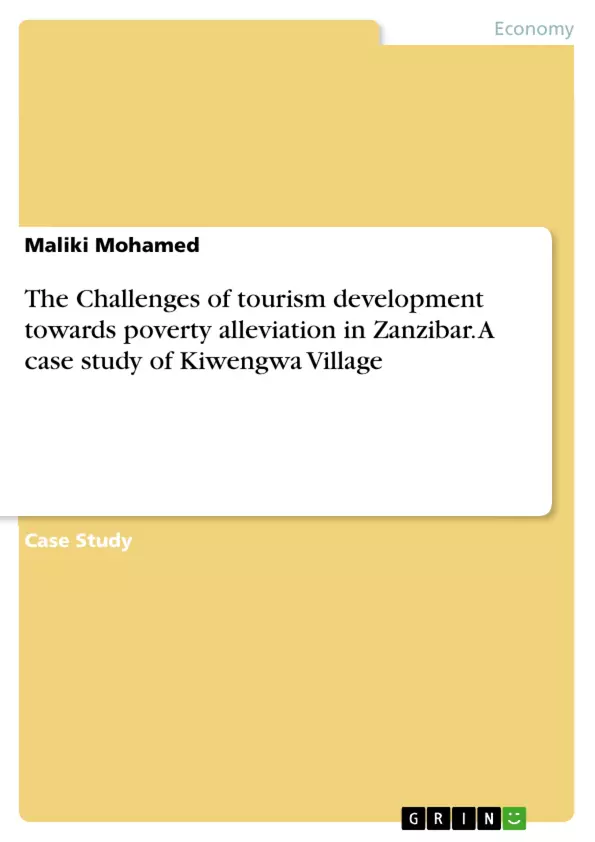This study was carried out in Kiwengwa Zanzibar. The aim of this study was to assess the challenges of tourism development in poverty alleviation in Zanzibar. The case study of Kiwengwa village intends to assess the local community’s opinion regarding tourism as a means of poverty alleviation as well as the level of the community participation in tourism development in Kiwengwa village. The primary data were collected using structured questionnaires and interviews. For quantitative data analysis was made using SPSS version 21.Qualitative data from the interview was coded and arranged according to their themes as they emerge which formed the basis for discussion. A sample size of 60 respondents was given questionnaires to fill and 5 were interviewed. Secondary data was collected from published and unpublished sources.
The findings of the study reveal that there are negative attitudes towards tourism development in poverty reduction. The local residents in reality are not in agreement that tourism might promote community development and alleviate poverty in their respective areas. The result of this study also found that there are a number of barriers which hinders community participation in tourism development. Such barriers include: lack of financial resources, poor involvement in decision making, lack of empowerment of local communities in the management. Also the findings of the study reveal that Poor understanding and low level of awareness of tourism concept, foreign domination in the tourism industry, unequal distribution of financial resources and lack of involvement of financial institutions, limiting tourism development towards poverty reduction.
Frequently asked questions
What is the primary focus of this document?
This is a comprehensive language preview which includes the title, table of contents, objectives and key themes, chapter summaries, and key words. It previews a research report or academic paper likely focused on tourism development and its challenges in alleviating poverty, specifically within the Kiwengwa region of Zanzibar.
What key areas does this document preview?
The preview covers several key areas:
- Copyright information
- Dedications and Acknowledgments
- Abstract Summarizing the document and its main points
- Table of Contents Outlining the structure and content
- Chapter previews containing introduction, objectives and research questions,
What does the table of contents include?
The Table of Contents details the structure of the main document. Chapters include:
- Introduction
- Literature Review (Theoretical Approaches: Modernization Theory, Dependency Theory, Alternative Development Theory)
- Research Methodology (Research Design, Area of Study, Population and Sampling)
- Data Analysis, Presentation and Discussion
- Summary, Recommendations, and Conclusions
- References and Appendices
What demographic information was collected in the study?
The demographic information collected includes:
- Gender
- Age
- Education Level
- Type of Employment
- Monthly Income
- Status of Employment
What was assessed regarding community participation?
The research aimed to understand:
- Whether the community participated in tourism.
- Local's opinion on importance of community participation in tourism development
- Local opinions and the levels in decision making processes
- Areas of people’s participation
- Factors hindering community participation and factors enhancing it
What are some of the key concepts defined in this document?
The document defines the meaning of various terms such as:
- Community development
- Community participation
- Development
- Local Community
- Poverty
- Poverty reduction
- Poverty alleviation
- Sustainable Development
- Tourism
- Tourism Development
What were some of the limitations to the study?
Some of the study limitations include:
- Limited geographical scope
- Lack of access to adequate data
- Problems in identifying tourism businesses
- Citation du texte
- Maliki Mohamed (Auteur), 2016, The Challenges of tourism development towards poverty alleviation in Zanzibar. A case study of Kiwengwa Village, Munich, GRIN Verlag, https://www.grin.com/document/339010



